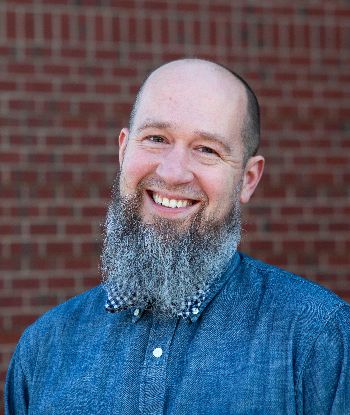Week 2 Reflection

JEREMY ALEXANDER, Ph.D.
INSTRUCTIONAL COACH
ROCHE CENTER FOR CATHOLIC EDUCATION
Thinking about identity is difficult and sometimes uncomfortable because we have to be honest with ourselves and others. But identity is not about isolation and the individual alone by themselves. Our identities are formed in and by the communities we find ourselves a part of. Sometimes those communities help us in forming and understanding our identity, while other times they can become an obstacle. Engaging with people online creates a kind of community, one where we may find others like ourselves and communities that can be divisive or condemning.
As we enter into a new week of our online summer book club it’s important to think about the kind of community we are shaping and forming. Many of us have never met and only know each other as a name on a screen. With this, it can be difficult to engage and learn from one another. But our hope is that you can find a place here to engage with important ideas and learn with and from one another. In order to do this we need to make a couple of starting points that serve as norms as we engage with each other.
The first starting point is that we are all here to learn and we’re striving to understand our students. While online platforms have done a lot to connect various people, it also flattens out our communication. A post lacks tone, inflection, and all the non-verbal communication that is so important for understanding one another. Because of this, we have to learn to give one another the benefit of the doubt and to assume that every comment is one made in good faith and aimed at understanding and learning. We may disagree with one another, but let us assume we’re all aiming to learn, to help our students, and to glorify God in our vocations. If we can start with this in mind, we’ll go a long way to forming an inclusive learning community this summer.
The second starting point is about ourselves as individuals and the stance we take as we engage. I want to encourage us to take a stance of humility. In his book Humilitas, professor and writer John Dickson defined humility as “the noble choice to forgo your status, deploy your resources or use your influence for the good of others before yourself” (p. 24). Applying this to learning and being in community, humility also means recognizing we may not know everything and we may have more to learn from others. Some of the most intelligent people I’ve met have also been some of the most humble about what they know, because they’ve realized there’s so much more out there to learn.
As we read The Age of Identity and engage with each other over the next several weeks let us start with assuming the best of one another and taking a stance of humility. If we do this, we may be able to form a small community that learns from each other, encourages one another in our vocations, and demonstrates what inclusion could look like.
Cheers,
Jeremy Alexander